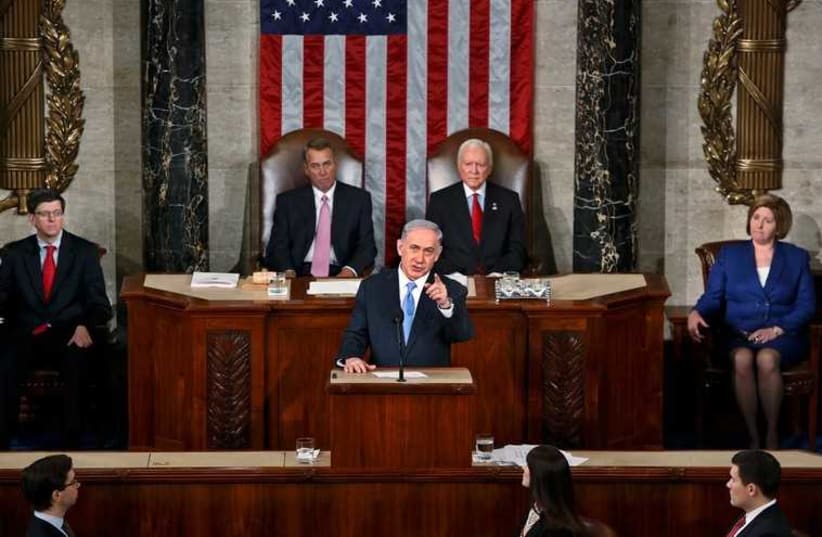When the prime minister of Israel paints a false picture in which a speech is the thing that will stop a nuclear Iran, he damages Israeli deterrence. The speech hurts deterrence because, today, the only one to benefit from the speech to Congress is not Israel, but rather, Iran. The Iranians are pleased with Netanyahu's address to Congress because they understand what the strategic meaning of it is for them: A diplomatically weakened Israel without the unwavering support from its strategic ally.
A reality in which Israel does not have the unquestioned support of the US and its allies is an existential danger no less severe than an Iranian atom bomb. A nuclear Iran endangers the entire world, not just Israel. It is a global problem and it must be solved globally, together with the US and Europe. Israel is strong. The IDF is strong, technologically-advanced and able to defeat any enemy. However, there are missions that can only be carried out as part of an international coalition. The fight to prevent a nuclear Iran is one such mission.
Israel has one of the best strategic infrastructures in the world. Many of its components are blue-and-white and are at the cutting edge of technology. At the same time, it contains many war systems and technologies that are American. Military supplies in times of routine and times of emergency from the US constitute a major part of Israel's power and its ability to remain in a state of combat for a sustained amount of time.
Strategic alliances and measured diplomatic and security policy is what Israel requires to stand before the challenges it faces. In the just fight to stop a nuclear-armed Iran, Israel must not only be "right," it must also be "smart."
